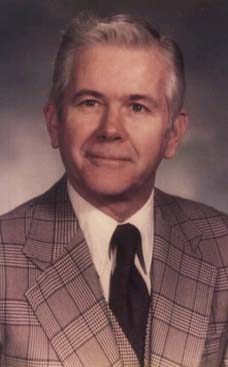August 31, 2005: Headlines: Internet: Law: Blogs: Blog Policy: Defamation: Slander: Wall Street Journal: In a legal case being watched closely by bloggers, an Internet company has sued the owner of a Web log for comments posted to his site by readers
Peace Corps Online:
Peace Corps News:
Library:
Peace Corps: Blogs:
Blogs and the Peace Corps:
August 31, 2005: Headlines: Internet: Law: Blogs: Blog Policy: Defamation: Slander: Wall Street Journal: In a legal case being watched closely by bloggers, an Internet company has sued the owner of a Web log for comments posted to his site by readers
In a legal case being watched closely by bloggers, an Internet company has sued the owner of a Web log for comments posted to his site by readers

Legal analysts said the suit could be a test case for determining what protections bloggers have or don't have for allegedly defamatory material posted by others. At issue would be the court's application of the federal Communications Decency Act, a 1996 law that, broadly, protects providers of computer services from being held liable for content posted by others. Legal analysts said the case falls into somewhat murky legal territory, but that Mr. Wall may have some protection from liability under federal law. Courts generally have held that the operators of computer message boards and mailing lists cannot be held liable for statements posted by other people. Blogs might be viewed in a similar light, they said.
In a legal case being watched closely by bloggers, an Internet company has sued the owner of a Web log for comments posted to his site by readers
Blogger Faces Lawsuit Over
Comments Posted by Readers
BY DAVID KESMODEL
THE WALL STREET JOURNAL ONLINE
August 31, 2005
In a legal case being watched closely by bloggers, an Internet company has sued the owner of a Web log for comments posted to his site by readers.
Traffic-Power.com sued Aaron Wall, who maintains a blog on search engine optimization – tactics companies use to get themselves to appear higher in searches at Google, Yahoo and elsewhere – alleging defamation and publication of trade secrets. The suit, filed in a Nevada state court earlier this month, also listed as defendants several unnamed users of the blog.
At issue are statements posted in the comments section of Mr. Wall's blog, SEOBook.com. Many blogs allow readers to post comments, often anonymously, and Mr. Wall's blog included several reader submissions that blasted tools sold by Traffic-Power.com.
Traffic-Power.com said in the suit that confidential information about the company has been published on the blog, and it accused Mr. Wall of publishing "false and defamatory information," but it didn't identify any of the material in question.
Legal analysts said the case falls into somewhat murky legal territory, but that Mr. Wall may have some protection from liability under federal law. Courts generally have held that the operators of computer message boards and mailing lists cannot be held liable for statements posted by other people. Blogs might be viewed in a similar light, they said.
Posting Complaints
Mr. Wall, 25 years old, who runs an Internet marketing business from his home, said the suit "is so vague in nature that it's hard to know what I'm being sued for." He has posted the text of the lawsuit on his blog and speculated about which reader comments may have prompted it. Some visitors to Mr. Wall's blog had posted comments complaining about what they said were unprofessional business practices by Traffic-Power.com, while others said they didn't think the tools sold by Traffic-Power.com were effective in boosting search-engine rankings. Mr. Wall, of State College, Pa., had also criticized Traffic-Power.com on the blog before the lawsuit was filed.
Other Web sites have criticized Las Vegas-based Traffic-Power.com's business, saying the company has coerced prospective clients into signing up for its service through aggressive telemarketing. Dave Baardsen of Absecon, N.J., who owns TrafficPowerSucks.com, said he also was sued this month by Traffic-Power.com in Nevada. He said he couldn't comment on the lawsuit because he had not yet hired a lawyer.
Steve Pellegrino, a spokesman for Traffic-Power.com, said the company had asked Messrs. Wall and Baardsen to remove some material from their Web sites before filing the suits, and sued them after they refused. "We have let this go on a year and a half," Mr. Pellegrino said.
Watching and Waiting
Bloggers have been buzzing about the lawsuit, swapping links to Mr. Wall's latest dispatches on the case and worrying about their own liability. Legal analysts said the suit could be a test case for determining what protections bloggers have or don't have for allegedly defamatory material posted by others. At issue would be the court's application of the federal Communications Decency Act, a 1996 law that, broadly, protects providers of computer services from being held liable for content posted by others.
In a key decision in 2003, the Ninth Circuit Court of Appeals in San Francisco ruled that the operator of a Web site can post material from others without liability for the content. "I think there's a strong case to be made that [the Decency Act] applies to bloggers," said Marc S. Martin, a lawyer with Kirkpatrick & Lockhart Nicholson Graham LLP in Washington, D.C., who specializes in technology law. It "was written very broadly, and the Ninth Circuit interpreted it broadly."
But Mr. Martin and other legal analysts said it was less clear how a court would view the accusation of misappropriation of trade secrets. The Decency Act doesn't provide protection when intellectual property is posted, and a court may rule that trade secrets fall under the definition of intellectual property. State law, rather than federal law, generally applies to trade secrets.
"If the trade-secrets claim is genuine," Mr. Wall may not have protection, said Michael J. Madison, an associate professor of law at the University of Pittsburgh. "But it's an open question."
Daniel Perry, an Orlando, Fla., lawyer who has closely followed Mr. Wall's case online, said Mr. Wall may have taken on liability by posting negative comments about Traffic-Power.com himself. Another problem, he said: Mr. Wall could be viewed as a commercial competitor to Traffic-Power.com. Mr. Wall's blog is so named because he wrote a guide called SEO Book, about search engine marketing, and he promotes the book on his site.
"To be candid, he sort of moved into this moving propeller," said Mr. Perry, a former Orange County judge. He said courts would likely focus on how Mr. Wall responded to requests to remove material from his site, and Mr. Wall's criticism of Traffic-Power.com. "The Internet is not your personal stump to beat up people."
There have been few lawsuits involving blogs so far, but lawyers have said the area is fertile ground for legal actions because blogging is both increasingly popular and rife with opinions about companies and individuals. Earlier this year, Apple Computer Inc. sued a Harvard student in a California court, accusing him of publishing trade secrets on his blog, ThinkSecret.com, in violation of state law. That case is pending in Superior Court in Santa Clara, Calif.
Write to David Kesmodel at david.kesmodel@wsj.com
PCOL's Policy on Posting of Defamatory Material

For the record, PCOL's policy on the posting of defamatory material is the following: PCOL will not allow the posting of defamatory material about RPCVs who are not public figures. In the case of public figures, PCOL will not publish statements with "actual malice" meaning statements known to be false or issued with reckless disregard as to the truth.
Defamation: Libel and Slander Law
Defamation: Libel and Slander Law
By Aaron Larson
Law Offices of Aaron Larson
August, 2003
Contents
* What Are Defamation, Libel and Slander
* What Defenses Are Available to People Accuse of Defamation?
* Public Figures
* Why Commencing a Defamation Action Is Not Always a Good Idea
It is not unusual for attorneys to receive inquiries about defamation actions from people who are in conflicts with neighbors or other members of their communities, and have become the subjects of vicious lies. The area of law most implicated by that type of conduct is "defamation of character", a cause of action which is generally defined to include "libel" and slander".
What Are Defamation, Libel and Slander?
Generally speaking, defamation is the issuance of a false statement about another person, which causes that person to suffer harm. Slander involves the making of defamatory statements by a transitory (non-fixed) representation, usually an oral (spoken) representation. Libel involves the making of defamatory statements in a printed or fixed medium, such as a magazine or newspaper.
Typically, the elements of a cause of action for defamation include:
1. A false and defamatory statement concerning another;
2. The unprivileged publication of the statement to a third party (that is, somebody other than the person defamed by the statement);
3. If the defamatory matter is of public concern, fault amounting at least to negligence on the part of the publisher; and
4. Damage to the plaintiff.
In the context of defamation law, a statement is "published" when it is made to the third party. That term does not mean that the statement has to be in print.
Damages are typically to the reputation of the plaintiff, but depending upon the laws of the jurisdiction it may be enough to establish mental anguish.
Most jurisdictions also recognize "per se" defamation, where the allegations are presumed to cause damage to the plaintiff. Typically, the following may consititute defamation per se:
* Attacks on a person's professional character or standing;
* Allegations that an unmarried person is unchaste;
* Allegations that a person is infected with a sexually transmitted disease;
* Allegations that the person has committed a crime of moral turpitude;
While actions for defamation have their roots in common law, most jurisdictions have now enacted statutes which modify the common law. They may change the elements of the cause of action, limit when an action may be filed, or modify the defenses to an action for defamation. Some may even require that the defendant be given an opportunity to apologize before the plaintiff can seek non-economic damages.
What Defenses Are Available To People Accused of Defamation?
The most important defense to an action for defamation is "truth", which is an absolute defense to an action for defamation.
Another defense to defamation actions is "privilege". For example, statements made by witnesses in court, arguments made in court by lawyers, statements by legislators on the floor of the legislature, or by judges while sitting on the bench, are ordinarily privileged, and cannot support a cause of action for defamation, no matter how false or outrageous.
A defense recognized in most jurisdictions is "opinion". If the person makes a statement of opinion as opposed to fact, the statement may not support a cause of action for defamation. Whether a statement is viewed as an expression of fact or opinion can depend upon context - that is, whether or not the person making the statement would be perceived by the community as being in a position to know whether or not it is true. If your employer calls you a pathological liar, it is far less likely to be regarded as opinion than if such a statement is made by somebody you just met. Some jurisdictions have eliminated the distinction between fact and opinion, and instead hold that any statement that suggests a factual basis can support a cause of action for defamation.
A defense similar to opinion is "fair comment on a matter of public interest". If the mayor of a town is involved in a corruption scandal, expressing the opinion that you believe the allegations are true is not likely to support a cause of action for defamation.
A defendant may also attempt to illustrate that the plaintiff had a poor reputation in the community, in order to diminish any claim for damages resulting from the defamatory statements.
A defendant who transmitted a message without awareness of its content may raise the defense of "innocent dissemination". For example, the post office is not liable for delivering a letter which has defamatory content, as it is not aware of the contents of the letter.
An uncommon defense is that the plaintiff consented to the dissemination of the statement.
Public Figures
Under the First Amendment of the United States Constitution, as set forth by the U.S. Supreme Court in the 1964 Case, New York Times v Sullivan, where a public figure attempts to bring an action for defamation, the public figure must prove an additional element: That the statement was made with "actual malice". In translation, that means that the person making the statement knew the statement to be false, or issued the statement with reckless disregard as to its truth. For example, Ariel Sharon sued Time Magazine over allegations of his conduct relating to the massacres at the Sabra and Shatila refugee camps. Although the jury concluded that the Time story included false allegations, they found that Time had not acted with "actual malice" and did not award any damages.
The concept of the "public figure" is broader than celebrities and politicians. A person can become an "involuntary public figure" as the result of publicity, even though that person did not want or invite the public attention. For example, people accused of high profile crimes may be unable to pursue actions for defamation even after their innocence is established, on the basis that the notoriety associated with the case and the accusations against them turned them into involuntary public figures.
A person can also become a "limited public figure" by engaging in actions which generate publicity within a narrow area of interest. For example, a woman named Terry Rakolta was offended by the Fox Television show, Married With Children, and wrote letters to the show's advertisers to try to get them to stop their support for the show. As a result of her actions, Ms. Rakolta became the target of jokes in a wide variety of settings. As these jokes remained within the confines of her public conduct, typically making fun of her as being prudish or censorious, they were protected by Ms. Rakolta's status as a "limited public figure".
When this story was posted in August 2005, this was on the front page of PCOL:





Peace Corps Online The Independent News Forum serving Returned Peace Corps Volunteers
 | The Peace Corps Library
Peace Corps Online is proud to announce that the Peace Corps Library is now available online. With over 30,000 index entries in 500 categories, this is the largest collection of Peace Corps related stories in the world. From Acting to Zucchini, you can find hundreds of stories about what RPCVs with your same interests or from your Country of Service are doing today. If you have a web site, support the "Peace Corps Library" and link to it today. |
 | Friends of the Peace Corps 170,000 strong
170,000 is a very special number for the RPCV community - it's the number of Volunteers who have served in the Peace Corps since 1961. It's also a number that is very special to us because March is the first month since our founding in January, 2001 that our readership has exceeded 170,000. And while we know that not everyone who comes to this site is an RPCV, they are all "Friends of the Peace Corps." Thanks everybody for making PCOL your source of news for the Returned Volunteer community. |
Read the stories and leave your comments.

Some postings on Peace Corps Online are provided to the individual members of this group without permission of the copyright owner for the non-profit purposes of criticism, comment, education, scholarship, and research under the "Fair Use" provisions of U.S. Government copyright laws and they may not be distributed further without permission of the copyright owner. Peace Corps Online does not vouch for the accuracy of the content of the postings, which is the sole responsibility of the copyright holder.
Story Source: Wall Street Journal
This story has been posted in the following forums: : Headlines; Internet; Law; Blogs; Blog Policy; Defamation; Slander
PCOL22040
86











